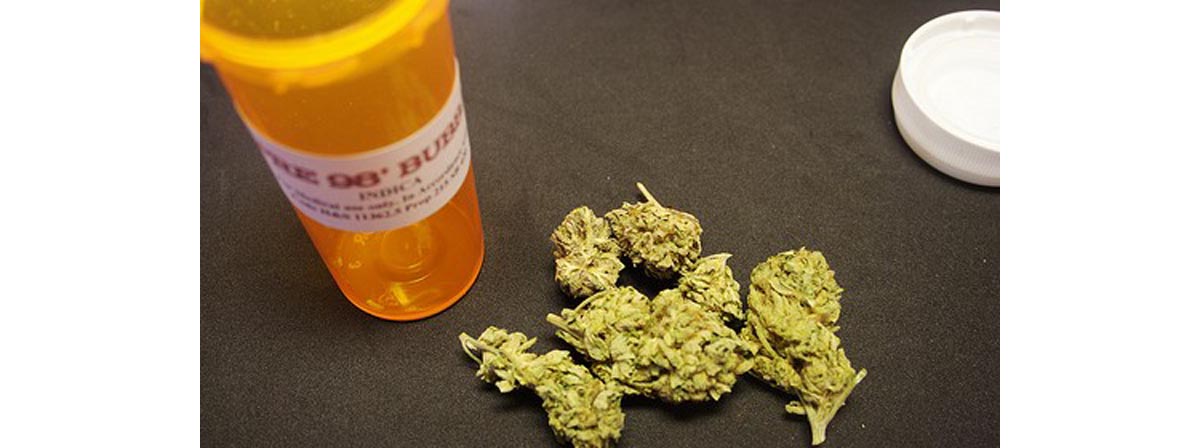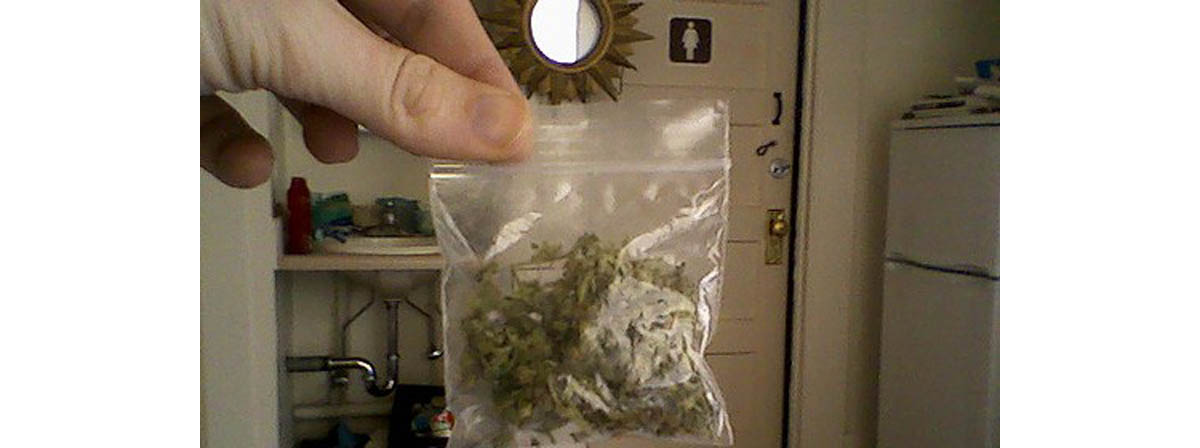Medical marijuana is making headlines, especially in the United States, but the use of marijuana to treat various disease conditions is nothing new. While claims that marijuana is a cure-all are hyperbole, there are varying degrees of objective evidence that marijuana or drugs that concentrate certain naturally occurring chemicals found in marijuana can relieve symptoms in some (although not all) cases of chronic pain, withdrawal from opiates (such as experienced by addicts in recovery after stopping heroin or Vicodin), glaucoma, multiple sclerosis, Alzheimer's disease, and some kinds of cancer.

The primary active in marijuana oil, a chemical called beta-caryophyllene, not only is legal but is listed by the Food and Drug Administration as an approved food additive. This compound is also found in basil, black pepper, cinnamon, cloves, hops, and oregano, and can be synthesized in the lab.
Some drugs derived from marijuana, such as dronabinol and nabilone, have been legal in the United States and Canada since 1985. Canasol, a prescription drug based on marijuana used to treat glaucoma, has been legal in the United States since 1987. A sublingual (under the tongue) spray for pain called Sativex is legal in Canada, the Czech Republic, the United Kingdom, and New Zealand. Sativex is expected to be approved throughout the European Union before 2016.
However, smoking pot to cure what ails you is not as widely accepted, although laws are changing rapidly around the world.
If you are an international traveler, and you use marijuana for a health issue, you can expect a tremendous range of legal restrictions ranging from complete acceptance to complete prohibition. The countries that have made the medical use of marijuana legal include:
- Argentina
- Bangladesh
- Canada
- Chile
- Netherlands
- Peru
Then there are countries in which the possession of small amounts (typically up to 6 grams, but check local laws) of marijuana for medical use has been decriminalized but possession or larger amounts or smoking pot in public (especially around schools) may be illegal. These countries include:
- Austria
- Brazil
- Colombia
- Denmark (as well as the Faroe Islands and Greenland)
- Iran
- Italy
- Philippines
- Portugal
- Russia
- Spain
- Venezuela
Residents of the United Kingdom generally cannot bring back marijuana for their personal use, although local use of small amounts may be tolerated.
In some countries, the possession of marijuana is illegal but law enforcement officials are encouraged to "look the other way." This is the case in Germany, India, Mexico, Pakistan, Romania, and South Africa.
Then there are countries in which the possession of even small amounts of marijuana may result in severe criminal penalties. These countries include:
- China
- Ecuador
- Egypt
- France
- Guatemala
- Greece
- Indonesia
- Japan
- Malaysia
- Panama
- Norway
- Poland
- Sweden
- Thailand
- Turkey
- All of the Arabian peninsula and most of the Middle East.
Then there is a patchwork of laws in Australia and the United States, in which possession of marijuana may be completely legal or may result in a prison term.
The Clearly Confusing Marijuana Laws Of Australia And The USA
In both Australia and the United States, individual states as well as the national government make marijuana laws. The legal situation in Australia is a little easier for the non-lawyer to understand.

In New South Wales, Queensland, Victoria, and Tasmania, the possession of any amount of marijuana is illegal. In the Australian Capital Territory (Canberra), South Australia, West Australia, and the Northern Territory, possession of small amounts of marijuana for personal use is not a criminal offense. However, throughout Australia, medical necessity is a defense against criminal action. However, trafficking in large amounts of marijuana (generally over 50 kilos/110 pounds of unprocessed weed) can result in life imprisonment.
The United States has a constantly changing patchwork of marijuana laws. On the federal level, possession of any amount of marijuana is still illegal, and can still result in stiff prison sentences. You don't want to be caught smuggling marijuana through a federal checkpoint, such as Immigration or Customs.
Most of the enforcement of American marijuana laws, however, is left up to the states, and each state makes its own rules.
- Since 2013, marijuana is completely legal, under state law, in both Colorado and Washington.
- In Alaska, Arizona, California, Connecticut, Hawaii, Maine, Massachusetts, Michigan, Montana, Nevada, New Jersey, New Mexico, Oregon, Rhode Island, and Vermont, possession of marijuana for medical purposes is legal. Typically a doctor's prescription is proof of medical necessity when a user is questioned.
- In Maine, Minnesota, Nebraska, New York, North Carolina, and Ohio, there is no exemption specifically for marijuana, but possession of small amounts of marijuana for any purpose is legal.
- In the rest of the United States, possession of any amount of marijuana is unlawful, but enforcement of the law may vary.
Local variations in attitudes toward marijuana laws may mean the same police officer may or may not make an arrest for marijuana depending on location. For instance, the city of Austin, Texas occupies parts of both liberal-leaning Travis County and extremely conservative Williamson County. If a state patrol officer makes a stop and finds marijuana in a car in Travis County, the driver of the car probably will be allowed to go. The the same state patrol officer makes a stop and finds marijuana in a car sometimes just a few feet away in Williamson County, the driver will almost certainly be taken to jail.
Buying medical marijuana in a part of the US where it is legal and taking it to part of the US where it is not legal is not a defense, at least not under current US laws. Even the ability to document medical use would not stop arrest in a part of the country where marijuana is prohibited.
The rule for travelers in the US is, smoker beware. While marijuana use is becoming more and more widely accepted, using marijuana in the wrong place at the wrong time can do more than ruin your vacation. It can ruin your life.
Marijuana laws are constantly changing, and from time to time we'll mention updates in the Comments section.
- Wood, D. Setback for medical marijuana as California court upholds local ban. Christian Science Monitor. 6 May 2013.
- Zdravotnictví prochází změnou. Léčba konopím je nyní legální | Zprávy z domova. www.lidovky.cz. Retrieved 31 May 2013.
- Photo courtesy of Mark by Flickr : www.flickr.com/photos/eggrole/4822607453/
- Photo courtesy of D.C.Atty by Flickr : www.flickr.com/photos/figgenhoffer/3628518782/


Your thoughts on this